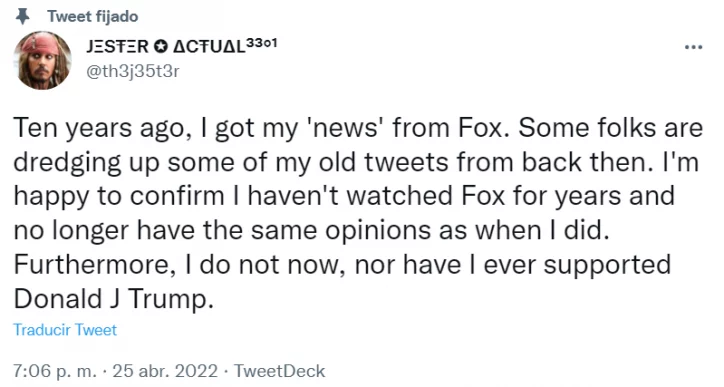The chaos of Elon Musk’s Twitter takeover has many users looking at alternatives.
No matter how you feel about Elon Musk’s Twitter takeover (did that sink ever get installed?), there is one unavoidable fact: For better or worse, the pioneering microblogging and social networking darling often called the “global town square” has entered an unpredictable new chapter.
The bewildering first two weeks of Musk’s ownership have brought chaos and confusion for Twitter users and employees alike. A mass layoff included crucial employees who had to be asked to return. An exodus of advertisers is accelerating. Hate speech increased immediately following Musk’s acquisition as users tested the limits of Musk’s self-proclaimed “free speech absolutism” (which, it appears, is not so absolute as to include criticism of Musk).
Meanwhile, misinformation is being shared more freely on the platform (including by Musk himself), and recently-published new rules have only further muddied the water.
Perhaps most indelibly, users created havoc in the wake of Musk’s stumbling attempt to revamp the checkmark verification system by impersonating and satirizing celebrities and brands, notably causing a multi-billion dollar stock hit for pharmaceutical company Eli Lilly and leading Musk to quickly scrap his new verification system.
Not exactly smooth flying so far for Larry the Bird’s new owner — and the drama has many users, including celebrities and brands, heading for the exits.
Ready to leave Twitter? 5 Alternatives to Consider

What Could Replace Twitter for Brands?
If you are considering leaving Twitter, you may be wondering: where will the global town square relocate, and will enough of your target audience be there to make it worth your while to set up a new brand presence?
The future of Twitter may not yet be clear, but plenty of other social networking sites can offer similar experiences. Each of these platforms is unique in its way, and none is an exact replica.
However, if you’re ready to hit the deactivate button on Elon’s experiment, here are 5 alternatives you may want to consider.

What Is Mastodon and Why Are People Leaving Twitter for It?
Twitter users will feel right at home on this buzzed-about microblogging network with familiar features such as short-form posts (or “toots”), profile pages, follower and following counts, timelines, hashtags, and reposting (called “boosting”).
The key distinctions from Twitter are that Mastodon is open-source, meaning anyone can contribute to its development, self-hosted, and decentralized, meaning there is no central server that controls the network. This makes it more resistant to censorship and hacking, gives users ownership over personal data and more control over content and fosters independence.
Mastodon does present some challenges for brands, however. Because it is structured across individual servers that each have their own rules and moderation policies, the culture — not to mention audiences for potential marketing — are subdivided, complicating delivery to wider audiences.
What’s more, Mastodon currently does not allow paid ads, meaning any brand content would have to come from your brand’s account.

Why Is Discord So Popular?
Discord is a voice and text chatting platform. With voice and video chat features and server/channel-based organization, you could describe Discord as being something akin to a combination of Skype and Slack.
In practice, very few users rely on Discord for video calls due to frequent issues with this side of Discord’s functionality and other video chat platforms that are more reliable.
Since its launch, Discord has been immensely popular among gamers and streamers. Lately, it has begun to gain broader popularity among families and friends. This growth has transformed the platform into a place where anyone can join or host a community.
Like Mastodon, Discord is decentralized. Additionally, it is very user-friendly and boasts frictionless adoption. Furthermore, video chat aside, it consistently works well.
While Discord does present similar challenges to Mastodon when it comes to delivering brand messages to wide audiences, community-based Discord marketing strategies are being actively developed and tested.
As new, decentralized frontiers open in the landscape of digital marketing, it is also worth remembering that, even though buying and targeting ads on these platforms is more complicated or even impossible, one of the golden rules of marketing remains true: A wider audience equals a weaker, less impactful message.
Strategies and approaches to marketing on platforms like Discord continue to develop, but the ability to speak to a community that has self-identified according to a specific interest may prove to be a blessing in disguise.

What Is Tribel?
If you’re looking for the closest-possible analog to Twitter, you may want to consider Tribel. Visually very similar to Twitter, this new activist-led platform bills itself as “an innovative Twitter/Facebook alternative that’s free of hate, fake news, and bots.”
Of course, such lofty ideals are not so easy to actualize, and so far, Tribel has largely fallen short of its stated goal to be the “kinder, smarter social network.” Derogatory and crude posts have proliferated on the platform, so don’t expect a social media utopia.
Nevertheless, if you simply want to swap Twitter out for a similar user experience with minimal disruption (and comparable negativity), Tribal may be the right choice for you.
Tribal currently does not allow posts that attempt to sell products or services.

Who Owns CounterSocial?
“No trolls. No abuse. No ads. No fake-news. No foreign influence operations.” So claims the description of CounterSocial, an alternative platform that aims for zero tolerance of problems plaguing social media today, such as disinformation, bots, and hostile nations.
Founded and owned by prominent U.S. hacktivist The Jester (a.k.a. th3j35t3r), has not been immune to criticism. For example, while a policy of zero tolerance towards hostile nation-states sounds good in theory, in practice, it led CounterSocial to entirely ban any users from six countries with high rates of cyber attacks: Russia, China, Iran, Syria, North Korea, and Pakistan. This move has been denounced as xenophobic and racist by Mastodon founder Eugene Rochko.
Other critics have pointed to The Jester’s right-wing background. However, the hacker has addressed those concerns, citing an evolution in his views.

Overall, it’s fair to say that CounterSocial is aptly-named: It specifically counters many problematic aspects of mainstream social media platforms, arguably making it just as much of an outlier in the opposite direction. While that may entice some users, anyone seeking a more balanced experience may want to keep looking.
CounterSocial does not allows ads or ‘promoted content.’

How Does WT Social Make Money?
Also known as WikiTribune Social, WT Social was founded by Wikipedia co-founder Jimmy Wales as an alternative to Facebook and Twitter. Like Wikipedia, WT Social operates entirely on donations, meaning the site contains no advertisements, and user data is never packaged and sold.
From its origins as a wiki-based news service, WT Social has grown into a microblogging and social sharing network focusing on sharing and discussing news stories.
The platform comprises SubWikis, or threaded community conversations about certain topics — similar to subreddits on Reddit.
WT Social is an exciting experiment in finding a new model for social media funding. And the platform’s focus on accurate information and meaningful conversation makes the experiment timely. Yet, it remains to be seen whether a social media company can be sustained on donations alone, and one thing WT Social is not is a direct recreation of the experience of using Twitter.
Still, in the wake of Musk’s acquisition of Twitter, WT Social has seen an influx of new users. If you are adventurous or an early adopter, you may want to give it a try!
As a news-based social media platform, WT Social does not allow non-news/content-related companies to hold accounts and will terminate any account dedicated entirely to promoting the category of goods. That said, there is one exception — fan communities.
According to the platform’s self-promotion policy:
“Whatever your content, if you want to make a subwiki dedicated to your podcast/blog/YouTube channel, etc. and share your content there, that’s fantastic. There are lots of fan subwikis already (example), and there’s nothing wrong with content creators getting on top of that.”

What Is The Best Alternative to Twitter for Your Brand?
The question of which option makes the best Twitter alternative for the average user is largely subjective, and it remains to be seen whether a majority of users will migrate to one service in particular over others.
To make things even more interesting, there are other new alternatives, as well. For example, Bluesky, announced in 2019 by Twitter co-founder Jack Dorsey, is currently in its testing phase. Cohost, likewise still in testing, models its interface on Twitter while promising that advertisers and algorithms will not dictate the user experience.
Older platforms like Tumblr and Reddit also remain as reliable as ever and may offer a haven for those who have soured on Musk’s Twitter.
Here at Sociality Squared, we will continue to monitor all developments at Twitter and keep an eye on the many new and existing alternatives. As always, our priority will be making the best possible recommendations to help our clients grow their communities and support their business goals.
For now, we’re testing out these new platforms as none seem to be emerging as “the one” for brands; however, if you want to get ahead of the curve, it’s always a good idea to secure a handle for your brand on these platforms so others can’t take or squat on it and see what happens. Remember, it’s better to do well on fewer platforms than to spread your team’s resources too thinly across too many platforms.
To continue the conversation, please reach out today.
Subscribe to our monthly S2xAccess newsletter:
